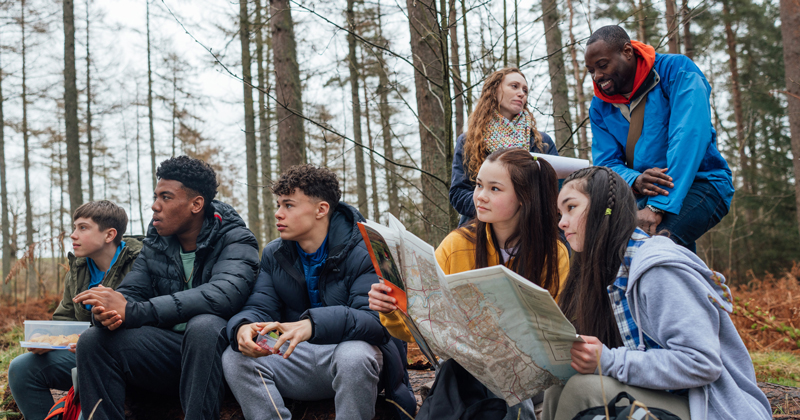Government recognition of the importance of enrichment gives us all the chance to rebuild the provision that gives education its spark, write Liz Robinson and Ruth Marvel.
Ask any teacher what they remember from school or college and it won’t be a test score.
It will be the play they performed in, the sports team they joined, or the social action club where they felt they belonged.
Those moments of discovery and connection stay with us for life.
As leaders working across education and youth, we’ve seen first-hand how enrichment transforms confidence, belonging and aspiration. That’s why the government’s commitment to an enrichment entitlement for every child matters.
It signals a shift towards valuing every part of learning – including those that take place beyond the classroom – to help young people connect knowledge and skills whilst exploring their passions and discovering their purpose.
Some school and college leaders have raised understandable concerns about workload and funding as the government introduces new enrichment benchmarks. Others worry about Ofsted oversight.
But rather than viewing this as another burden, this is an opportunity for the sector to shape a policy that reflects what schools and colleges already do best.
Why now is the right time
We’re still waiting for full details of how the benchmarks will work. But the Enrichment for All coalition – with partners across education, youth, arts, sport, outdoor learning and social action – has developed a framework that we know is informing the government.
Our shared goal is that every young person, wherever they grow up, can:
- express creativity through arts and culture
- connect with nature, outdoors and adventure
- take part in sport and physical activity
- build skills for life and work
- contribute to their community through citizenship and social action.
School and college leaders have long understood that enrichment isn’t an optional extra – it’s what gives education its spark, helping pupils feel motivated, confident and part of something bigger.
Recent recommendations from the Education Endowment Foundation reinforce what so many already know: engagement in enrichment activities improves attendance, wellbeing and outcomes, especially for pupils eligible for Pupil Premium funding or children and young people facing financial or socio-economic barriers.
Cash to rebuild ecosystem
For more than a decade, schools and colleges have held together the fabric of youth and community life as local provision has fallen away.
They cannot, and should not, rebuild that ecosystem alone.
Enrichment works best when organisations work together in a community – teachers, youth workers, cultural and sports organisations, employers and families – to create experiences in collaboration with schools and colleges.
The real opportunity is to ensure that these new benchmarks become a framework for collaboration, not compliance.
The government’s £135 million Dormant Assets Youth Fund, delivered by the National Lottery Community Fund, will fund the first step towards rebuilding the support around schools and colleges – so they’re not expected to deliver enrichment alone.
Used well, this investment will rebuild the community provision that sits alongside schools and colleges.
Schools and colleges are already showing what purposeful enrichment looks like in action.
At Surrey Square Primary, enrichment is integral: by working with external providers the school taps outside expertise in gardening, chess, dance and youth clubs, listening to pupils and the community to shape offers that work.
In Sunderland, Laidlaw Schools Trust’s Pennywell Fellowship links six schools with civic, business, cultural and community partners to pool resources and provide opportunities no single school could deliver alone.
Oasis Community Learning embeds enrichment through its community hub model, employing youth and family workers and partnering with local and national organisations.
STAR Academies’ Five Foundations of Leadership guarantee every pupil takes part in sport, the arts, volunteering and culture.
Many schools also use The Duke of Edinburgh’s Award to personalise enrichment, nurture passions and celebrate achievement.
From benchmarks to belonging
The government’s new benchmarks are an invitation to rebuild an education system that values the whole child and the whole community.
To deliver on that promise, we need shared leadership: schools opening their doors, youth and cultural sectors stepping forward, funders and policymakers aligning effort and resources.
If we work together – truly as a team around every child – the enrichment entitlement can become more than policy. It can be the moment we decide that every young person, wherever they grow up, deserves the chance to belong, contribute and flourish.









Your thoughts